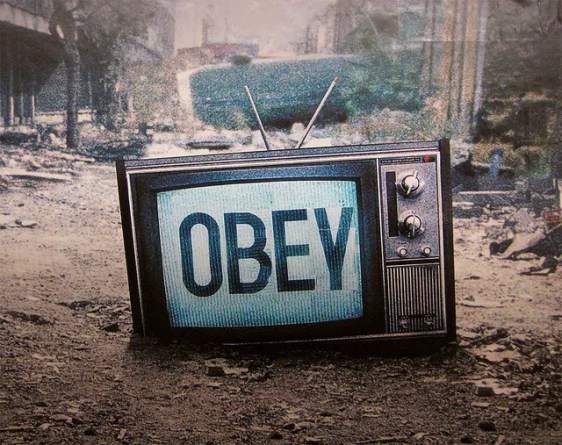
Television is drastically changing our epistemology–that is to say that TV changes the way we formulate what we believe–at least according to Neil Postman, the author of the 1985 book Amusing Ourselves to Death: Public Discourse in the Age of Show Business.
Television, like any medium, has unintended consequences. One of the unintended consequences of television is that it serves more as a medium for entertainment than a medium for serious discourse. This is seen in the state of political TV commercials. TV is exploited by politicians who know that playing to emotions and mudslinging is more effective than explaining facts about one candidate’s position and experience.
And that is why Postman shared what I quote below, explaining why he thought all political commercials should be banned:
I am particularly fond of John Lindsay’s suggestion that political commercials be banned from television as we now ban cigarette and liquor commercials. I would gladly testify before the Federal Communications Commission as to the manifold merits of this excellent idea. To those who would oppose my testimony by claiming that such a ban is a clear violation of the First Amendment, I would offer a compromise: Require all political commercials to be preceded by a short statement to the effect that common sense has determined that watching political commercials is hazardous to the intellectual health of the community.
I’m not very optimistic about anyone’s taking this suggestion seriously…
Television, as I have implied earlier, serves us most usefully when presenting junk-entertainment; it serves us most ill when it co-opts serious modes of discourse–news, politics, science, education, commerce, religion–and turns them into entertainment packages…
The problem, in any case, does not reside in what people watch. The problem is that we watch. The solution must be found in how we watch. For I believe it may fairly be said that we have yet to learn what television is. And the reason is that there has been no worthwhile discussion, let alone widespread public understanding, of what information is and how it gives direction to a culture.
It is worth noting that Postman wrote that in the 1980s, and that in many ways, we are worse off today. We don’t fully grasp how our technology like TV and social media affect how we formulate our beliefs. If we’re not careful, we can let our political beliefs be influenced more by a meme seen on Facebook or a headline on Twitter than the important things.
TV’s negative effects on political discourse can be seen in televised debates as well. Political debates used to be several hours long, with lengthy expository speeches, followed by a rival candidate’s robust point-by-point critique of the ideas presented. Our debates today are so short and TV-driven that they risk being totally useless. Candidates know that to the TV audience (which is just about everybody), their non-verbal communication and stories targeted at stirring emotions may be more important at swaying constituent’s hearts than a more fact-based, here-are-things-that-matter approach. (Oh, and one more rule for televised political debates: just don’t say anything awkward or stupid, because with the current state of internet discourse, that could seal your fate faster than you can say “Binders Full of Women.”)
The challenge I give to you and to myself is to not fall into TV’s (or social media’s) epistemological trap. Don’t let the emotional arguments, mudslinging ads, and all the unimportant things communicated during political TV commercials develop your beliefs for you. Hold to firm convictions, research the candidates on the ballot, and make your vote count.





The typical spate of negative political commercials has kicked in and more than ever before I feel they are worthless. Most are exaggerations and some outright lies.
However, I’m wondering if we probably need to add a lot of other topics and not just politics to this list of intellectual casualties. I’ve seen a number of atheist memes on the internet that act like hit and run messages–abbreviated, sarcastic statements whose creators are not willing to hang around and engage anyone at the level of substance. The only people they would probably affect (unfortunately) are youth. The rest of us just get annoyed.
However, there is something to be said about the way we learn and are affected by things we don’t necessarily drill into–items that hang around our social space and demand little concentration. These typically seep in through ingenious graphics, one-sided statements, and constant presence. Even folks who value intellectual exercise are by no means immune.
http://www.bareknuckle.org